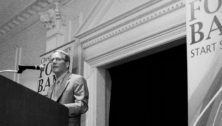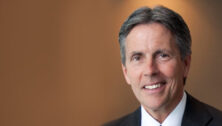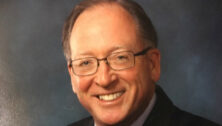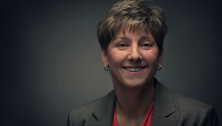Chester County Leadership: Glen Macnow, WIP and TV Host, Beer Slinger, PR Consultant
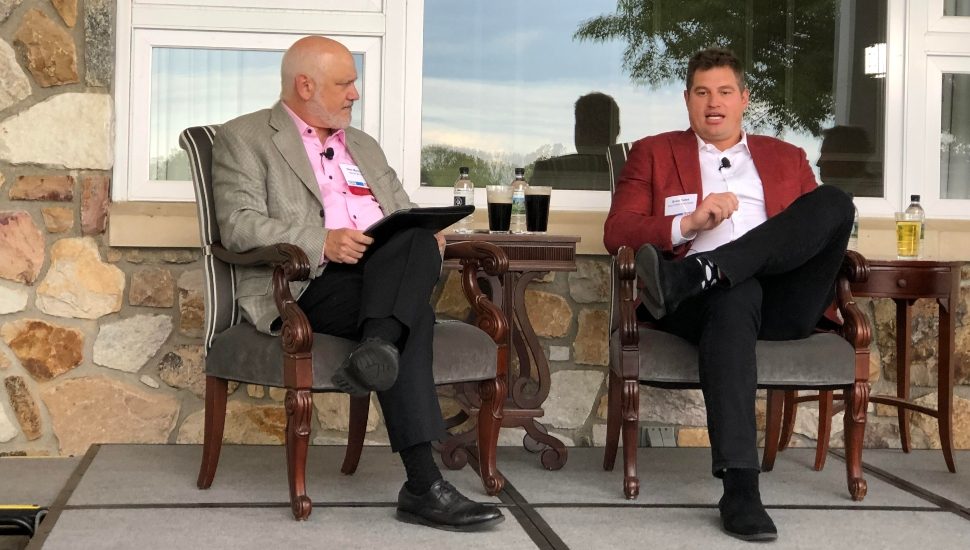
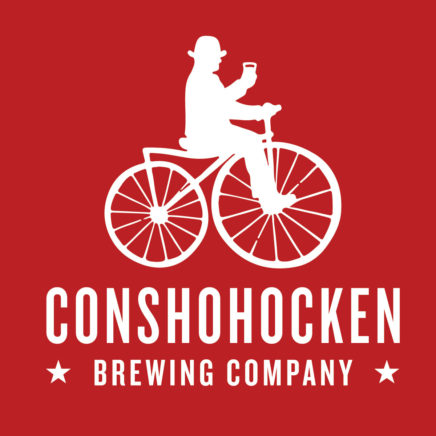
Glen Macnow, the long-time WIP sports-talk host, part-owner of Conshohocken Brewing Company, and the man who can’t quite get over the fact that people pay him to “talk about sports and beer, coach writing and write what I think,” recently sat down for an interview with VISTA Today.
He spoke about growing up in Buffalo; discovering he enjoyed the physicality of sports more than the play itself; dragging his father, a baseball and Yankees fan, to a Buffalo Bills game and doing play-by-play of Buffalo Sabres games into a cassette tape recorder; and never imagining a career in sports journalism or and any sort or journalism for that matter. Rather, he thought he was destined to be a commercial artist and follow in his father’s footsteps in the world of advertising and media.
That all changed, according to Macnow, when a professor at Boston University saw promise in his ability to write and tell stories, and set him on a career path in journalism, first in Florida, then Detroit and eventually landing in Philadelphia in 1987.
The rest, they say, is Philadelphia sports history.
Where were you born, and where did you grow up, Glen?
I was born the younger of two children, in 1955 in New York City, where both my parents had grown up. When I was three, my father got tired of the commute to Madison Avenue. He moved us 400 miles away to a suburb outside of Buffalo named Snyder, the farthest anyone in our family had ventured outside of Queens until that point.
What did your parents do for a living?
My father was a commercial artist working for an ad agency and also drew caricatures, which he sold to newspapers. He went to a job fair and was approached by an advertising agency in Buffalo. He had no idea where Buffalo was. In his mind, Buffalo was just north of Yonkers and south of Poughkeepsie. When he got home from the interview, he looked at a map and finally realized where Buffalo was.
My mother was a stay-at-home mom until I was eight years old. When I was eight, she went back to college and got a degree in teaching from Buffalo State. She taught third and fourth grade at Mullen School in the Tonawanda School District and taught over a thousand kids to read.
What do you remember about growing up in Snyder?
It was cold! Winter would go from November to April, so we learned to ski, skate, sled, and play hockey. You spent the whole winter outdoors. We would play street hockey and baseball until it got dark.
What other sports did you play?
I played every sport except basketball. We played baseball until it was too cold to play baseball. I played JV baseball in high school and batted .400, which is to say I went 2 for 5 the whole season!
Part of the challenge I had in high school was I was a late bloomer. I didn’t have a growth spurt until I was fifteen years old. I was really good in Little League, but then everyone grew quicker than me.
When did you discover your love of sports?
When I was seven-years-old, I remember turning on the tv and seeing a bunch of guys tackling each other and running around. It was the first time I saw football, and I thought the scene was the most remarkable thing I had ever seen.
My dad was not a football fan. He was a baseball fan – a Yankee fan, and my mother was a Dodgers fan. He loved baseball and boxing. Boxing was a big deal where and when he grew up. I dragged him to a Buffalo Bills game at War Memorial Stadium which I thought was the most beautiful building I had ever seen even though it is arguably the worst stadium ever built. I was enthralled by the entire experience.
When I was a little kid, my father would let me stay up late on Friday nights to watch the Gillette Cavalcade of Boxing on TV. I loved the physicality of boxing and sports in general.
How did you discover your gift with words and broadcasting?
I was somewhat drawn to the radio before I was drawn to writing. Our high school had a radio station that I was on, which was a lot of fun. When I was a teenager, I regularly went to the Buffalo Sabres games with a friend of mine. We would sit in the cheap orange seats at the top of the arena and broadcast the game into a tape recorder. We would do play-by-play until the tape ran out, usually somewhere in the second period. At that point, describing the action was just something I did for fun; I did not think that would be a career path.
I got into writing in my Sophomore year at Boston University. I originally enrolled at BU as a Fine Arts major because that’s what my father did. After a year, I switched over to film because I wanted to be a filmmaker. The filmmaking curriculum required me to take a writing course, and it was in that writing class that I realized that was drawn to the written word.
I had a great professor named Timothy Cohane, who was the sports editor of Look Magazine. He inspired me to love writing.
Did writing come easy to you?
It was tough, but the toughness is what makes writing good. Years later, I had the opportunity to teach journalism at St. Joe’s. One of the things that makes writing worthwhile is that it’s hard. When it’s easy, it’s not fun. Communicating the words you want and getting people to read them is not easy, and that’s why I like it.
Did you have any jobs in high school, Glen?
I always had jobs. My first job was a newspaper delivery boy when I was twelve and I was a summer camp counselor for several summers.
I spent one summer as a maintenance man at a country club, which was fun when I could spend the day riding around on the big lawn mowers, but not when I had to clean the bathrooms.
I was a Fuller Brush salesman for one summer, going door-to-door. That was a horrible job but I made good money.
Did your parents require you to work, or did you work because you wanted spending money?
They didn’t demand it but it was expected back then. I got an allowance, but I wanted some spending money. It was always nice to make money.
What lessons did you learn from those jobs that still stay with you today?
Always show up. That’s the biggest lesson, and the one that I’ve carried on through other things. The biggest ability is durability. Always be there and always do the best you can.
What kind of music were you listening to back then?
I was a huge Beatles fan. I had an uncle who was ten years older than me, and he came to live with us for a while when he was 18-19, right before he went into the Navy. He would listen to the early 60s music. I didn’t really like that music much. The thing I remember was the buildup to February 1964 and the Beatles were going to be on Ed Sullivan. My sister and I watched that and loved it.
I loved classic rock. The first concert I ever went to was for my sister’s birthday in 1967 in Miami Beach was the Monkees and the opening act was Jimi Hendrix.
Did you look at other schools other than Boston University?
I looked at Temple and Rochester Institute of Technology. A few things drew me to Boston University. It was an art school, which is the major I wanted to pursue. BU was a bigger school, which attracted me. Finally, BU was in Boston, a great city. Finally, the female to male ratio was very favorable! I thought maybe I would get lucky and meet a nice girl!
Looking back, was BU a good choice for you?
It was! I met my wife so those numbers worked out! I received a good education at BU. Having grown up in the suburbs, being tossed into the city for college made me grow up fast. I was protected growing up, so I initially struggled a bit in college. But, looking back, I would recommend BU to anyone.
Who were the people who saw promise in you and opened doors for you, Glen?
The first is Professor Cohane from my writing class, whom I mentioned earlier. I took two semesters with him. One day he said to me in his booming voice, “Mr. Macnow, I think someday you may have a book in you.” It was a hell of a compliment coming from him.
What do you think Professor Cohane see in you?
I think he saw that I was a quick learner and loved writing. Writing is not easy to do, and it’s not easy to teach. He taught me how to write. He taught me devices, how to use the language, and how to express myself in lessons that I still remember and still use in my radio and writing to this day.
Were there others who saw your potential?
My first editor John Hanchette was very inspirational to me. I reported to John during my first internship with the Niagara Falls Gazette in college. John helped me land my first job out of college in Cocoa Beach, Florida. He was a great guy to watch in how he dealt with interviews, people, and sources. He was the tough newsman that showed me how to do that part of the job.
The third was a guy by the name of Charles Overby. When Charles became the editor in Cocoa Beach, he made me the political writer at the age of 23. He ended up leaving the paper to work for Senator Lamar Alexander.
How did you get to Philadelphia?
I got my first writing job in Cocoa Beach when I was twenty-two. From there, I got a job at the Fort Lauderdale News and Sun-Sentinel, where I covered politics. When I was twenty-five, I covered the Reagan campaign for the Sun-Sentinel.
I knew I didn’t want to stay in the south and wanted to get back north. In 1981, I was lured to the Detroit Free Press to cover education and politics.
In 1986, Joe Distelheim, my editor, created a job to have me cover off-the-field sports topics including labor, drug, and other sports business issues. I thought it was great, and Joe knew no one else wanted to cover it. I did that for a year. I loved sports, but I never wanted to cover sports. I thought that was my fondness, not my job, but covering them this way was different. I now covered sports as a business.
In 1987, my editor at the Detroit Free Press asked me to cover a court case in Pittsburgh involving Curtis Strong, a club house attendant selling drugs to players on the Pirates. There was a big trial, and he wanted me there. On the first day of the trial, I sat next to a woman who worked for the Philadelphia Inquirer named Lucinda Fleeson. I hung out with her for the week of the trial.
Six months later, I got a call from the Philadelphia Inquirer asking me if I would be interested in covering sports business / sports off the field for the Inquirer. Turns out they knew about me because Lucinda had recommended me. In 1987, I took the job and moved to Philadelphia, arriving in a week after the MOVE bombing!
You’ve been here for 33 years! You’re almost a Philadelphia native!
I’ve lived here since 1987 so almost exactly half my life, longer than I’ve lived anywhere else. I live in Havertown in Delaware County now and I’m addicted to Mare of Easttown! Ending up in Philly was the luck of the draw just sitting there in that courtroom. Coming to Philadelphia was the best thing for my family.
Do you have a favorite on-air moment?
I’ve had a few favorite moments since joining WIP on December 6th, 1993. The first happened in March of 2004, the night before they demolished the Vet. I’m doing my show until 11 PM. I encouraged listeners to call with one last tribute to the Vet. People are calling in to toast Buddy Ryan, Mike Schmidt, and more.
Suddenly, I realized this should be a thing. I announce that when my show is over, I’m going to drive down to the Vet and asked listeners to join me for one last toast. Guys started calling to say they were bringing wine and cigars. I thought maybe twenty people would show up. In the end, some 200 people showed up! The cops were great and let all 200 of us drink, toast, and sing the fight song for an hour or two. We all went home and watched them blow the Vet up the next day on TV. It made me realize that people who listen to the radio are all part of the same club.
Getting to cover the 2008 Phillies Parade and the 2017 Eagles Superbowl Parade was a really cool.
Another moment that stands out wasn’t a fun moment, but powerful nonetheless. I was on the air the morning of September 11th. So many people were scared and confused and not sure where to go. That was before social media and Twitter, and there wasn’t really a powerful local news talk station in the town, so people called WIP. That day and the following day were very therapeutic for me to share the experience with my listeners.
Coming out of a challenging year, Glen, what are your priorities looking forward?
My life is pretty easy right now. I get paid to talk about sports and TV, drink beer, and sell beer. What possible complaint could I have?
My wife and I raised our two kids and we’re proud of them. They’re both working adults, in great relationships, and doing well. I have three grandkids and absolutely love being a grandfather. I want to keep working at the WIP.
I have a lot of interests that I want to pursue – some financial and some just fun. If I can keep doing what I’m doing for a few more years, that’s all I need.
What’s ahead for Conshohocken Brewing?
I’m very proud to be part of this company. We started seven years ago. We have grown immensely and built a production facility to triple our capacity a few years back. We have five restaurants/brewpubs, all of which survived the pandemic. We expanded outdoor dining and our canning production so you can drink our beer at our brewpubs or buy a four-pack in a store and enjoy our beer at home. We now sell in Pennsylvania, New Jersey, and Delaware.
I think everyone is looking to get out and enjoy themselves, so I think it’s going to be a good year.
Any new locations on the drawing board?
We’ll see. The plan right now is to make sure the locations and production facilities we have are good and steady before expanding any more.
What do you do in your spare time, Glen?
I don’t have a lot of free time because I have a lot of jobs including working as a consultant for a PR agency in the city where I work with young professionals improving their writing and networking skills. I really enjoy that a lot.
I have a one-year-old grandson that my wife and I babysit two days a week. I also ride my bike every day and try to stay in shape.
Do you read much?
I try to read as much as I can. I do need to be in the know about sports and what’s going on.
I just read Ray Didinger’s book, and before that was the most recent John Grisham book. I’m waiting on the newest Jake Tapper book. Like everyone else, I get sidetracked and waste too much time on social media sometimes.
Finally, Glen, what is the best piece of advice you’ve ever received?
I can think of a couple. My father, who is going to be 91 this summer, always told me, treat the waiter as well as you treat the CEO. Which was a great piece of advice from my father.
A piece of advice a friend gave me that I didn’t really appreciate until I was a few years into radio, “the worm that destroys you is listening to the critics too much, trying to please those who don’t like you.”
What that meant to me was believe in yourself and do what you think is right, not what your critics want you to do.
I started to follow my friend’s advice in my forties. One of the greatest aspects of getting older is that I developed this sense of myself and being comfortable in who I am and what I do.
Connect With Your Community
Subscribe to stay informed!
"*" indicates required fields























![95000-1023_ACJ_BannerAd[1]](https://vista.today/wp-content/uploads/2023/03/95000-1023_ACJ_BannerAd1.jpg)





















